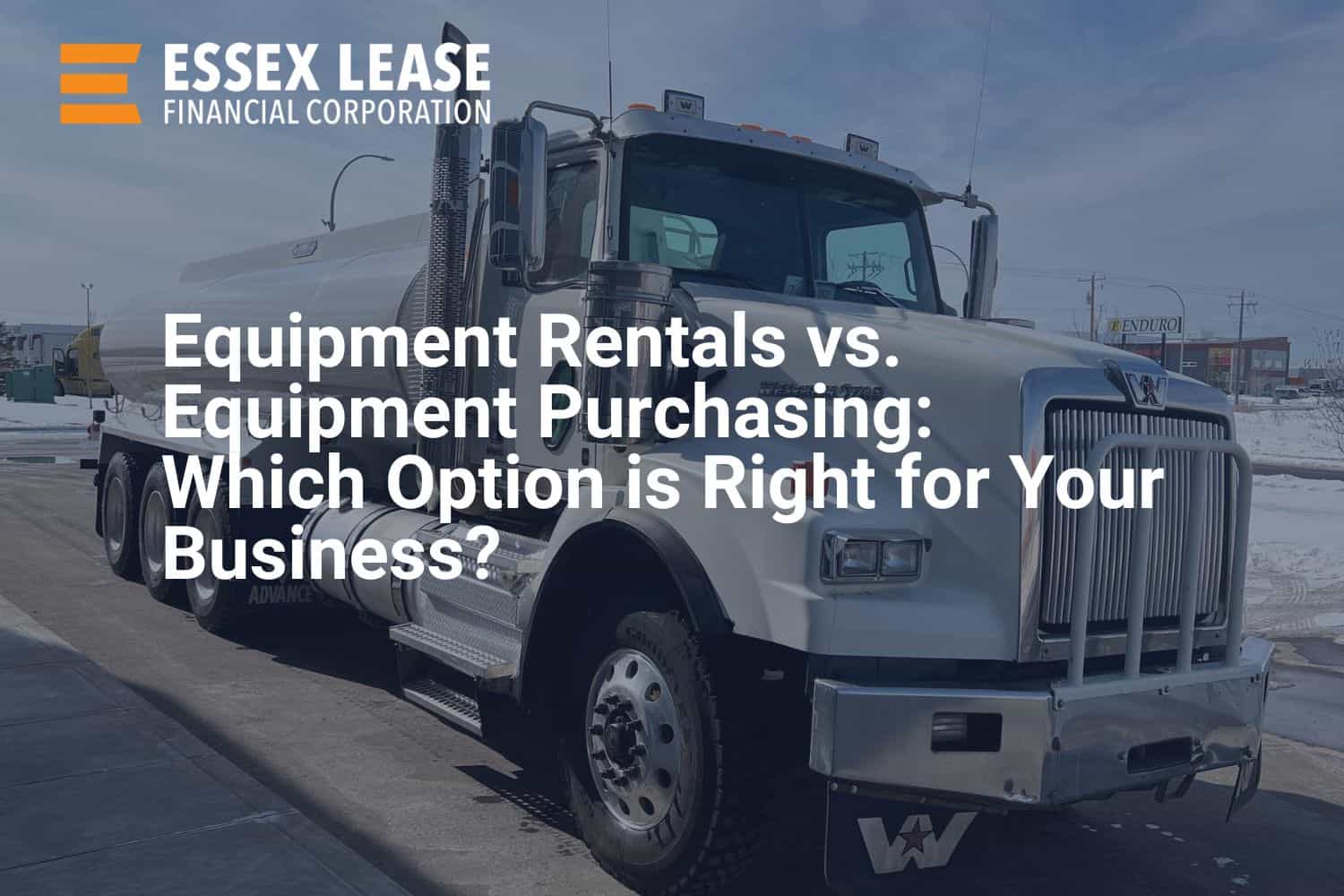When it comes to outfitting your business with the right equipment, one question inevitably arises: Should you rent or purchase? Each option has its own set of advantages and challenges, and making the best decision depends on factors like your business goals, financial situation, and specific equipment needs.
Let’s dive into the pros and cons of both equipment rentals and purchases to help you determine which path aligns best with your business objectives.
The Case for Equipment Rentals
For many businesses, renting equipment provides flexibility and financial ease that purchasing simply can’t match. Here are a few reasons why renting might be a strategic choice:
- Flexibility: Renting lets you acquire equipment only when you need it, avoiding the commitment of long-term ownership. This is especially useful for seasonal businesses or projects with a defined timeline.
- Lower Upfront Costs: Rentals do not require a large initial investment, making it easier to manage cash flow and allocate capital to other areas.
- Access to the Latest Technology: When you rent, you can frequently upgrade to the latest equipment models, ensuring you’re always using up-to-date technology without worrying about depreciation.
- Maintenance and Repairs Included: Many rental agreements include maintenance and repairs, saving you both time and money by avoiding unexpected repair costs.
The Drawbacks of Equipment Rentals
While rentals offer flexibility and low upfront costs, they also come with some limitations:
- Long-Term Costs: If you’re renting equipment for a prolonged period, the cumulative costs may exceed what you would have paid to purchase the equipment outright.
- Limited Customization: Rental equipment may not be tailored to your exact needs, as modifications are often restricted.
- Availability Issues: During high-demand seasons, securing the equipment you need can be challenging, potentially slowing down your operations.
The Benefits of Equipment Purchasing
Owning your equipment provides benefits that go beyond flexibility, especially for businesses with consistent, long-term equipment needs.
- Ownership and Control: When you buy, you have full control over the equipment and can use it as you see fit. Ownership also gives you long-term value as the equipment becomes an asset for the business.
- Cost Efficiency: For businesses that need equipment on a continuous basis, purchasing is often more economical over time compared to ongoing rental fees.
- Tax Benefits: Equipment ownership may provide valuable tax incentives, such as the ability to depreciate assets or qualify for tax deductions.
The Challenges of Equipment Purchasing
Purchasing can be an excellent investment, but it also comes with its own set of responsibilities and financial commitments:
- Upfront Costs: Buying equipment requires a substantial initial investment, which can impact cash flow.
- Maintenance and Repairs: Ownership means you are responsible for all maintenance and repair costs, which can add to operational expenses.
- Depreciation: Equipment loses value over time, especially if technology advances rapidly, which can affect its resale value and long-term financial return.
Alleviating the Drawbacks of Purchasing: Equipment Financing
If the upfront costs of purchasing are a concern, equipment financing may provide the solution you need. Financing helps you acquire equipment without tying up large amounts of capital.
- Spread the Cost Over Time: Financing enables you to spread the cost of equipment over a period, making it accessible without the burden of a large initial investment.
- Maintain Cash Flow: Flexible payment plans allow you to manage working capital more effectively, ensuring funds are available for other business needs.
- Customized Financing Options: Essex Lease Financial Corporation offers tailored financing plans that align with your business’s goals, making it easier to invest in essential equipment.
- Tax Benefits: Financing may also come with tax advantages, such as deductions on interest payments or the ability to depreciate assets, helping offset the cost of ownership.
A Hybrid Solution: Rental Purchase Options
For businesses looking for the best of both worlds, Rental Purchase Options (RPOs) provide an ideal solution, blending the flexibility of renting with the benefits of ownership.
- The Best of Both Worlds: Start by renting equipment, and if it proves valuable for your long-term needs, you can choose to purchase it.
- Try Before You Buy: RPOs allow businesses to test equipment before committing to a full purchase, reducing the risk of investing in machinery that might not fit perfectly.
- Building Equity: Some RPO agreements allow a portion of your rental fees to go toward the final purchase, helping build equity in the equipment and creating a smart financial option for growing businesses.
Your Decision
Choosing between renting, purchasing, financing, or using a Rental Purchase Option depends on your business’s specific needs, cash flow, and long-term plans. At Essex Lease Financial Corporation, we’re here to help you navigate these options with flexible financing plans, rental services, and RPOs designed to support your growth.
Explore how we can assist you with equipment solutions tailored to your business goals—contact us to start your journey today.
